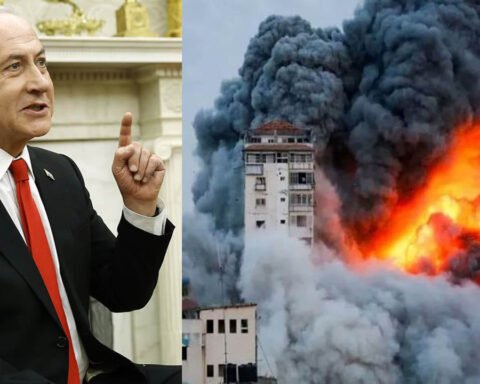Russian President Vladimir Putin has warned that the Russian economy must not be allowed to slide into a recession, even as economists and government officials raise the alarm over signs of slowing growth and stagnation.
Speaking at the St. Petersburg International Economic Forum on Friday, an annual platform where Russia discusses its economic vision with global and domestic stakeholders, Putin addressed a hall filled with ministers, central bankers, and business leaders. He acknowledged growing concern from experts warning of economic stagnation, adding, “This must not be allowed to happen under any circumstances.”
He stressed the need for “a competent, well-thought-out budgetary, tax and monetary policy,” insisting that a stable, forward-looking approach is the key to steering Russia away from a potential downturn.
Earlier in the week, Maxim Reshetnikov, Russia’s Minister of Economic Development, admitted the country may be on the edge of a recession. He cited troubling indicators such as weakening industrial production, declining private investment, and mounting inflationary pressure as key signs of strain.
Meanwhile, Elvira Nabiullina, Governor of the Central Bank of Russia, voiced similar concern. She warned that the “resources that supported economic growth in recent years are largely depleted,” pointing to labor shortages and high government spending, particularly linked to the ongoing Russia–Ukraine war, as critical bottlenecks.
Also Read; Retained Earnings Tax Sparks Heated National Debate
Despite the gloom, Putin struck a more optimistic tone. He highlighted that Russia’s GDP grew by 1.5% in the first four months of 2025 and pointed to declining inflation, which has dropped to 9.6% from double-digit highs in 2023. He also cited growth in the manufacturing sector as evidence that the economy is slowly diversifying and becoming less dependent on oil and gas exports.
Still, economists remain cautious. Many believe the current growth is unsustainable, as it is driven largely by military spending and short-term fiscal injections. Long-term prospects remain clouded by heavy Western sanctions and foreign investor flight, following Russia’s growing isolation from global markets since 2022.
The absence of key Western investors and companies at this year’s forum—once a hub for global business leaders—was especially noticeable. With limited foreign capital and diplomatic ties increasingly strained, experts argue that Russia may struggle to achieve stable growth without broader structural reform.
Putin’s firm stance that a recession must be avoided reflects the stakes at hand. For a country grappling with the effects of war, economic sanctions, and global isolation, steering clear of contraction will require more than optimism—it will demand strategic foresight, resilience, and international re-engagement.







